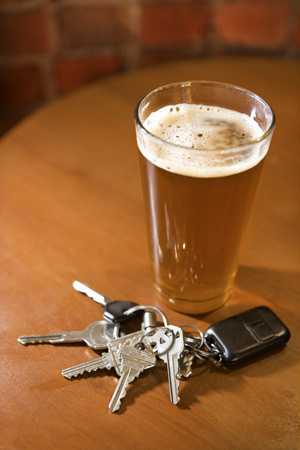Driving and Autos: Driving Under the Influence
Drunk Driving Laws
Although there has long been an assumption that drunk driving is a relatively minor offence in Mexico, attitudes are rapidly changing. Police statistics suggest that a random testing program has more than halved the number of alcohol related traffic deaths in Mexico City. However, drinking and driving is still more common in Mexico than it is in other North American countries.
In Mexico, the legal limit for driving is a blood alcohol limit of 0.08 grams per 100 milliliter. Driving at or above that level is considered to be driving under the influence. Drivers testing below this limit may be warned, but would not be charged. Although this is a national limit there are some regional variations, including zero limits for learners and professional drivers in some states.
The minimum legal age to learn to drive automobiles in Mexico is 16. A person can legally drink alcohol from the age of 18.
Sobriety Test
If you are stopped by the police under the suspicion of drunk driving, you are required to take a Breathalyzer test. It is a criminal offence to refuse to take the test. If you fail the test or the police believe for other reasons that your driving is impaired as a result of drinking, you would be arrested. In road accidents every driver can be tested with a screening Breathalyzer. With serious injuries or death, generally blood tests are taken.
Random roadblocks are very common in urban areas and particularly in the vicinity of popular nightspots.
Penalties for Driving Under the Influence
The penalties for being tested over the limit vary regionally, although all states impose license suspensions of some duration and any driver that fails a Breathalyzer test will be taken immediately to jail for up to 36 hours.
Drug Laws
There is no specific law targeting drugs and driving, but possession of illegal drugs is a federal offense. Drivers caught with narcotics in their vehicle are likely to face at least one year in jail.
Social Attitudes toward Drinking
Mexico has a relatively low rate of alcohol consumption with almost half of the adult population claiming to abstain from drinking alcohol. Despite this, heavy drinking in social situations is still commonplace in urban areas. Heavy consumption of alcohol is accepted at family events and particularly in male groups. Early attempts to control drunk driving with random roadblocks was met with resistance but attitudes have changed due to advertising of health impacts and the greater coverage of CCTV that has regulated interactions between police and motorists.
Article written for World Trade Press by Paul Giess.
Copyright © 1993—2024 World Trade Press. All rights reserved.

 Mexico
Mexico 